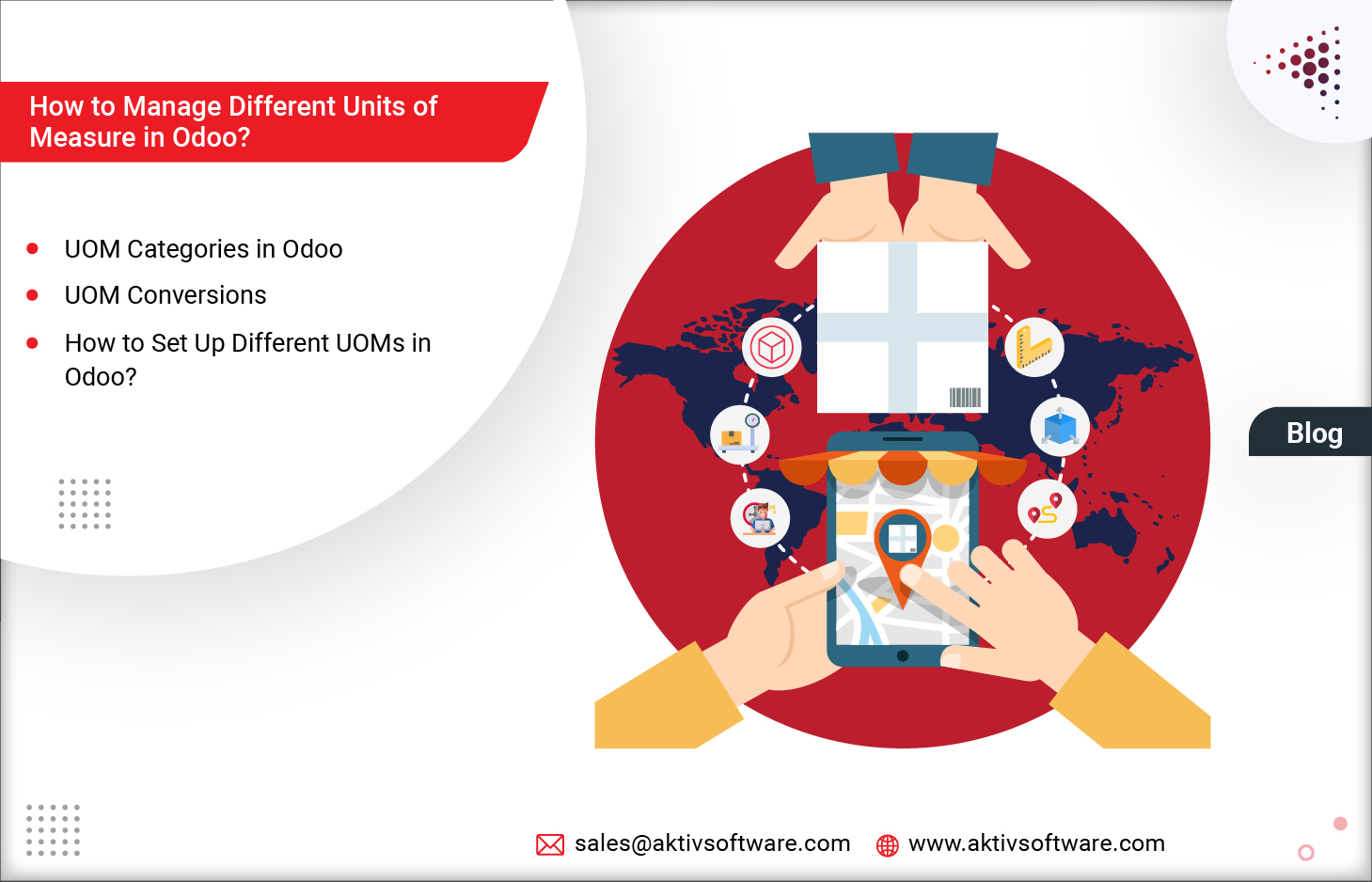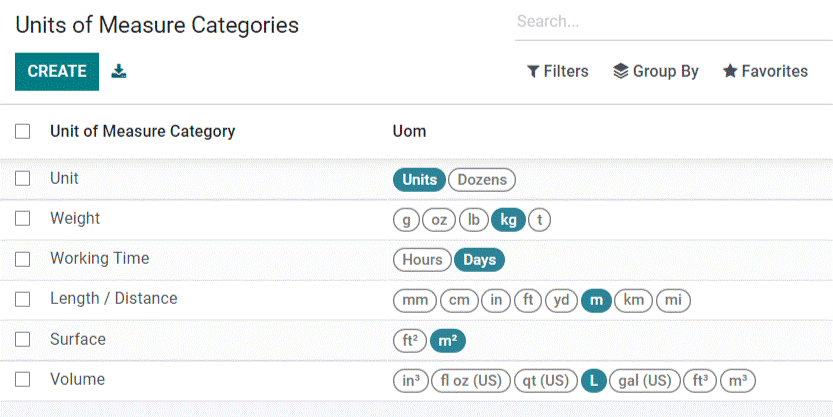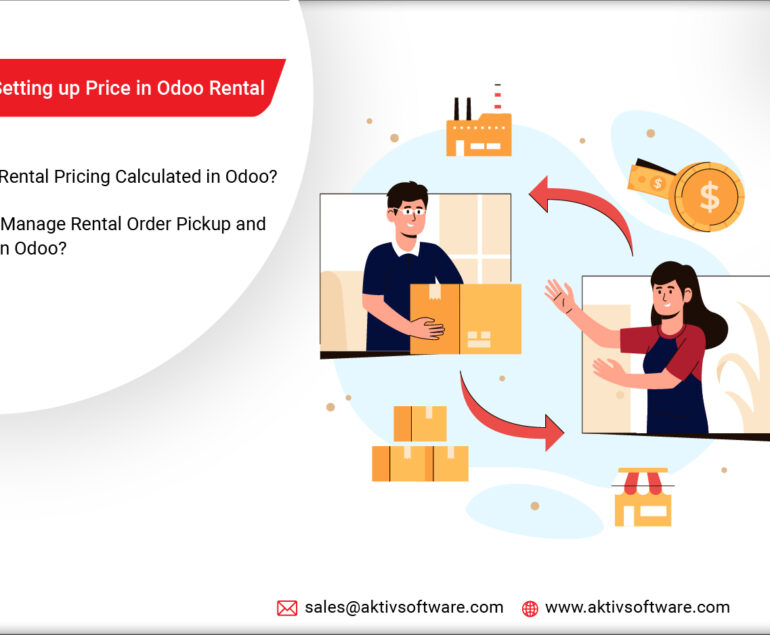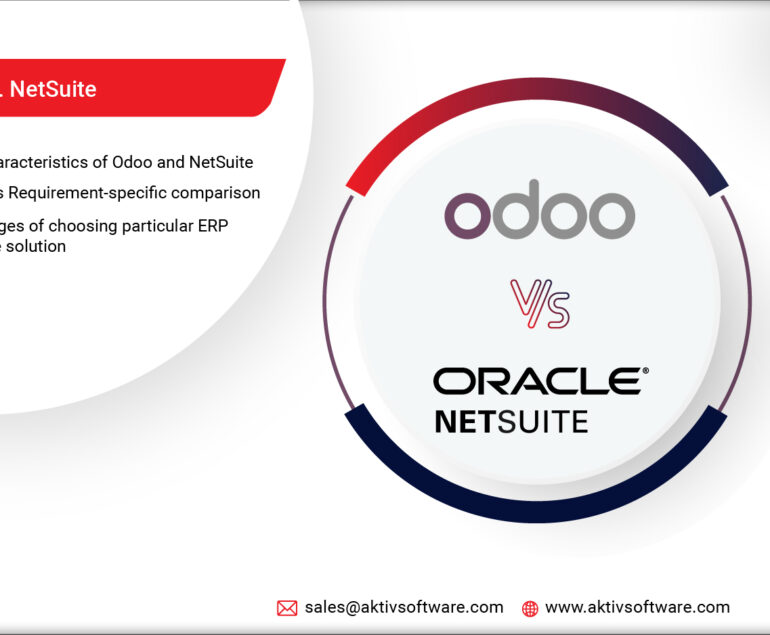As a business owner, managing inventory, pricing, and purchasing can be a challenging task. One issue that arises when selling and purchasing products is managing different units of measure. Fortunately, Odoo provides several features that can help businesses manage different units of a measure effectively.
It may be necessary to manage products in different units of measure in certain situations. For instance, a business may procure products from a country that uses the metric system but intends to sell those products in a country that uses the imperial system.
As a result, the business would need to convert the units accordingly. Alternatively, a business might purchase products in large quantities from a supplier but subsequently sell them in smaller units, requiring conversion between units of measure.
Benefits of using different Units of Measure in Odoo while selling and purchasing products:
Accurate Inventory Management: Using different UOMs in Odoo allows you to accurately track inventory levels. You can purchase products in one UOM and sell them in another, but the system will automatically calculate the conversion rates between the different UOMs, allowing you to keep track of how much inventory you have on hand.
Flexible Pricing: Using different UOMs also gives you more flexibility in pricing. For example, you can offer different prices for different UOMs, such as selling a product by piece or weight. This can be useful when you are dealing with customers who have different needs or when you are selling products that come in different sizes.
Improved Customer Experience: Offering different UOMs can improve the customer experience by making it easier for them to understand and order the products. For example, if you are selling products by weight, it may be easier for customers to order if they can see the price per gram or ounce instead of by kilogram or pound.
Increased Efficiency: By using different UOMs in Odoo, you can increase efficiency and reduce errors. For example, if you are purchasing products in one UOM and selling them in another, you can set up conversion rates in the system so that the quantities are automatically calculated. This can save time and reduce the risk of errors in manual calculations.
UOM Categories in Odoo
By default, Odoo provides these UOM categories- Unit (Units, Dozens), Weight (g, oz, lb, kg, t), Working Time (Hours, Days), Length/Distance (mm, cm, in, ft, yd, m, km, mi), Surface (ft2, m2), Volume (in3, fl oz, qt, L, gal, ft3, m3).
If required, you can create a custom UOM category in Odoo as per your requirement.
All these UOM categories have a reference unit that acts as a base for any unit conversions. For example, for the UOM category “weight,” the reference unit is kg, so let’s say if a customer places an order for 1000 gm of Mangoes, Odoo will reflect the order as 1 kg of Mangoes in the system.
How to Set Up Different UOM in Odoo?
Here’s how to set up and use different Units of Measure in Odoo:
- Enable the “Product Units of Measure” feature in Odoo.
- Create different units of measure for each product. For example, you can create units of measure for weight, volume, or pieces.
- Set up conversion ratios between the different units of measure. For example, if you sell a product by weight, you can set up a conversion ratio between kilograms and grams.
- Create pricing rules based on the different units of measure. For example, you can set up a pricing rule for products sold by weight, such as $1 per gram.
- Manage inventory levels based on different units of measure. For example, you can track inventory levels based on weight, volume, or pieces.
In conclusion, using different units of measure while selling and purchasing products as a business can provide several benefits.
Odoo provides robust features that can help businesses manage different units of measure effectively, improving accuracy, efficiency, and compliance.
By setting up UOMs, UOM categories, and conversion rates in Odoo, you can ensure that your transactions are accurate and that you can easily manage your inventory and pricing across different units of measure.










